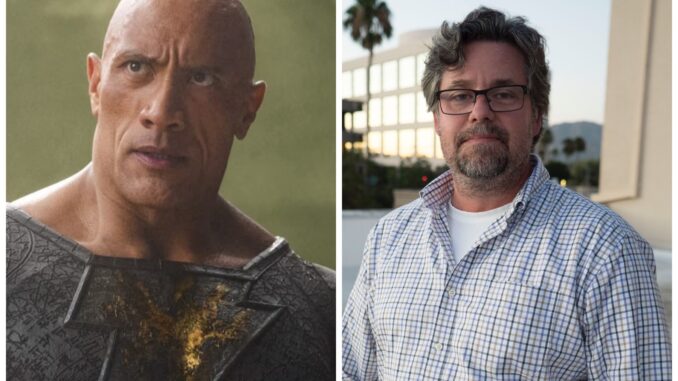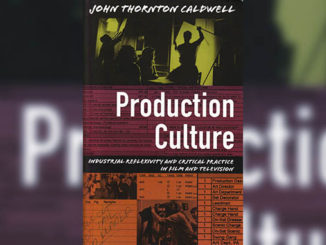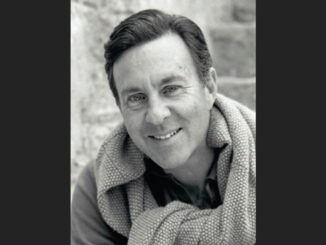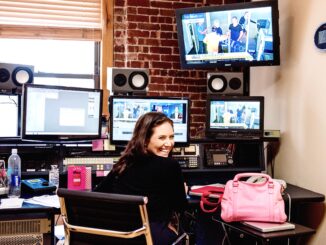
By Rob Feld
Sometimes it’s a discovery, sometimes it’s a calling. Editing beckoned to Mike Sale, ACE, even from when he was in high school in Maynard, Mass.
Some astute teachers had pointed him toward theater and performing as a child, and by 12 he had a radio show at the high school station. There he began editing audio for comedy bits, using layering techniques while cutting audiotape with razor blades. When cable television came around and Sale’s school was given a public access station, he threw himself into editing tape. After cutting together footage from a town road race, backing it with Bob Seger’s “Against the Wind,” and playing it on a big screen TV at the local Elks lodge, Sale was hooked. Someone else could act and “be on stage flopping.” He would cut.
At 21, Sale did what only someone that age would do, and drove cross-country to couch-surf and find his way into editing. To hear him tell it, he stumbled into a golden string of PA jobs, apprenticeships, and mentors with a big break coming on “The Garbage Pail Kids Movie,” which turned union mid-shoot and allowed Sale to join the Guild. “It was just me and the editor, Leon Carrere, who was Guild,” he recalled. “I’d been in L.A. less than a year, just as electronic editing was hitting the industry, and may have been the first person in the Editors Guild who had never handled work print.”
The opportunity to learn post-production every step of the way from the film’s producer, John Strong, was followed by assistant jobs with great editors on shows like “Max Headroom,” “The Wonder Years,” “L.A. Law,” and “Northern Exposure,” the latter of which began to shape his view of emotion-driven comedy. He made his leap into feature comedy assisting William Kerr, and ultimately worked his way up through a string of Judd Apatow comedies as an additional editor, and finally to full editor with Kerr.
As the theatrical market has shifted, so has Sale, applying his comedy background to the action-comedy genre, most recently editing “Black Adam” with John Lee. The film tells the genesis story of the DC Comics anti-hero, with many characters to introduce and lots of origin story to cover, without losing the momentum of the narrative. There was also the opportunity to harken back to the hit action comedies of the 1980’s that Sale and Lee loved like “Die Hard,” which were packed with action, underpinned by emotion and humor.
CineMontage: Nobody likes to talk about themselves, but you benefitted from an amazing string of mentors at a very young age. You couldn’t have just Forrest Gump’d your way through them. What do you think they saw that led them to invest in you?
Mike Sale: Alec Smight, William Kerr, Dennis Vejar, Phil Sgriccia, Leon Carrere, Stuart Bass. They all just took me under their wing. I’m pretty sure they knew I was just this idiot kid and I think they thought it was funny to some degree. But I have a performance background, so I was always good at picking performances. Also, I had worked at a movie theater where I saw hundreds of movies in front of audiences, from the late ’70s to the mid-’80s. I watched them so many times—things like “E.T.”—that I could tell you what the audience was going to do. I would actually mimic them in the back of the theater. But mainly, my brain was always firing on problem-solving. I wish I was a person that could finish editing, go home, and not think about the movie. But no. Sometimes years after the movie comes out, I’ll think, “We could have done this!” I’m also a super nerd and all the computer stuff fascinated me, so the confluence of what happened in the ’80s all balled together through my career—all the things I loved about theater, movies, and puzzles were happening on a computer. So, I ended up being a good person for the craft of editing.
CineMontage: What did you learn about handling comedy footage from these experiences?
Mike Sale: If you go back to the “The Wonder Years,” it was a comedy, but it also had emotion and story. That lesson was drilled into me. “L.A. Law,” as well. Those two shows were my film school. “Northern Exposure” was another one. When I first entered feature comedy, it was as an assistant to my mentor William Kerr on “Tommy Boy” or with Jim Symons on things like “Naked Gun 33 1/3.” I love those movies but they’re three jokes a minute, no emotion. By the time we were doing “Bridesmaids,” William and I were cutting together. What we learned was that the movies we liked the most, and the movies that held up over time, were comedies that did more than one thing. Judd Apatow doesn’t just want to make a funny movie. He wants to make a great movie that’s also the funniest movie of the year. A great movie has characters you love, more than one emotion, and a reality that makes it resonate with you for a long time. “Die Hard” does the same type of thing, where you have unbelievable action with maybe eight monster laughs in it. It’s opposite of a “Superbad,” where we have hundreds of laughs but one beautiful emotional moment that you might not be expecting. So, what we learned was that the art of cutting comedy is about comedic discipline. It’s about using jokes that don’t destroy the characters or the story, understanding that we’re powerful enough to make people laugh almost as much as we want, but the questions are: when do we want them to laugh, where do we want them to laugh, and how do we want them to laugh? In the past few years, I’ve taken that information and morphed into action comedies, which are popular now. Sadly, they’re really not making those R rated movies for the movie theater anymore.
CineMontage: How do those lessons translate to action-comedy?
Mike Sale: On “Die Hard” or “Black Adam,” you’re using comedic discipline because if there’s too many jokes in “Black Adam,” it undercuts the tension and gravity of the storyline and the characters. You’re doing the opposite than on a “Superbad,” where you’re saying: here come the jokes, we’re funny, we’re funny, we’re funny, emotion! When nobody’s looking, Bam! we hit you and you think, I felt something. How did that happen? For “Black Adam,” we’re saying: we’re not funny, we’re drama, this is real, this is real, Bam! Joke! No, we’re drama, we’re drama ...
CineMontage: It sounds like there was a practical, career decision made to move in this direction.
Mike Sale: I’m pretty good at looking forward and predicting trends, which is a survival skill. The hardest choice for an editor, if you have a choice, is choosing your next project. It takes a whole year, and editors and directors are judged harshly by the results. As an editor, you ride with that movie, and it is going to affect what you can work on in the future. I knew that comedy is cyclical, and I was waiting for the bottom to drop out of the talkie comedies, like it had after the “Naked Guns.” Those were the top-grossing comedies and then everybody started making parody movies until nobody wants to see them anymore. Looking ahead, I realized that the box office and the market was going to be global. So, I started looking for films with comedy in them that were going to appeal internationally. Dialogue-driven comedies don’t have a good chance of doing that all the time. That was action comedy.
CineMontage: You worked on other action and special effects films before “Black Adam,” but can you use it as an example of the difference in process?
Mike Sale: My co-editor, John Lee, has made many big comic book movies. We also had a great post-vis editor, Krisztian Majdik. The bottom line is, I was dropped into this amazing team with an incredible support group, so I could come in with my knowledge and skills of character-building, storytelling, and comedy to work on this very complicated movie, with lots of characters to introduce. I like the choices we made and I’m happy with them. There are people who might have wanted more character development in it, but each element of backstory could honestly be its own movie. So, at a certain point we had to pick a path, which was to be lean. We decided to tease the audience and hope that the reaction we get at the end of the movie is, “I want to know more about Dr. Fate. I want to know more about the JSA. What is the backstory of Smasher?” I can tell you from testing the movie these past couple of weeks, it plays like a rock concert. We decided to make this a movie that when families go out on the weekend in these hard times, where theater is trying to come back, they’re all going to have a great time. And I think we hit that note pretty hard.
CineMontage: How do you handle those kinds of story decisions in post-production in an effects-driven movie? Do you have more flexibility to impact story or less?
Mike Sale: We didn’t change the basic script or premise but along the way we found things out. Originally, a lot of the backstory was told by characters that were not Black Adam, so they felt expositional and unemotional. So, one of the things we worked on was putting that story in places that involved Black Adam, where he was either present or telling the story, so that it added more emotion to the father/son dynamic that we were playing with. We also found out during the course of editing that this sort of love/hate bromance relationship between Hawkman and Black Adam was something that people liked, and we needed to service it more. In movies, you discover as you’re shooting and crafting how it can be better. Our job is to elevate. New for me, though, was that Christian, our previz person, was on through the whole process. I could say, “Hey, I’m cutting this fight and working on this character beat. Did you guys ever have anything else?” And Christian would say, “Yes, 18 months ago.” He’d pull it up and I we could revisit it. Or, “We need a hero beat for Smasher and Cyclone,” and Krisztian would get to work on options. Jaume [Collet-Serra] would come up with a plan and three weeks later, I’d have this unreal engine version of our hero beat. That doesn’t happen on “Superbad.”






